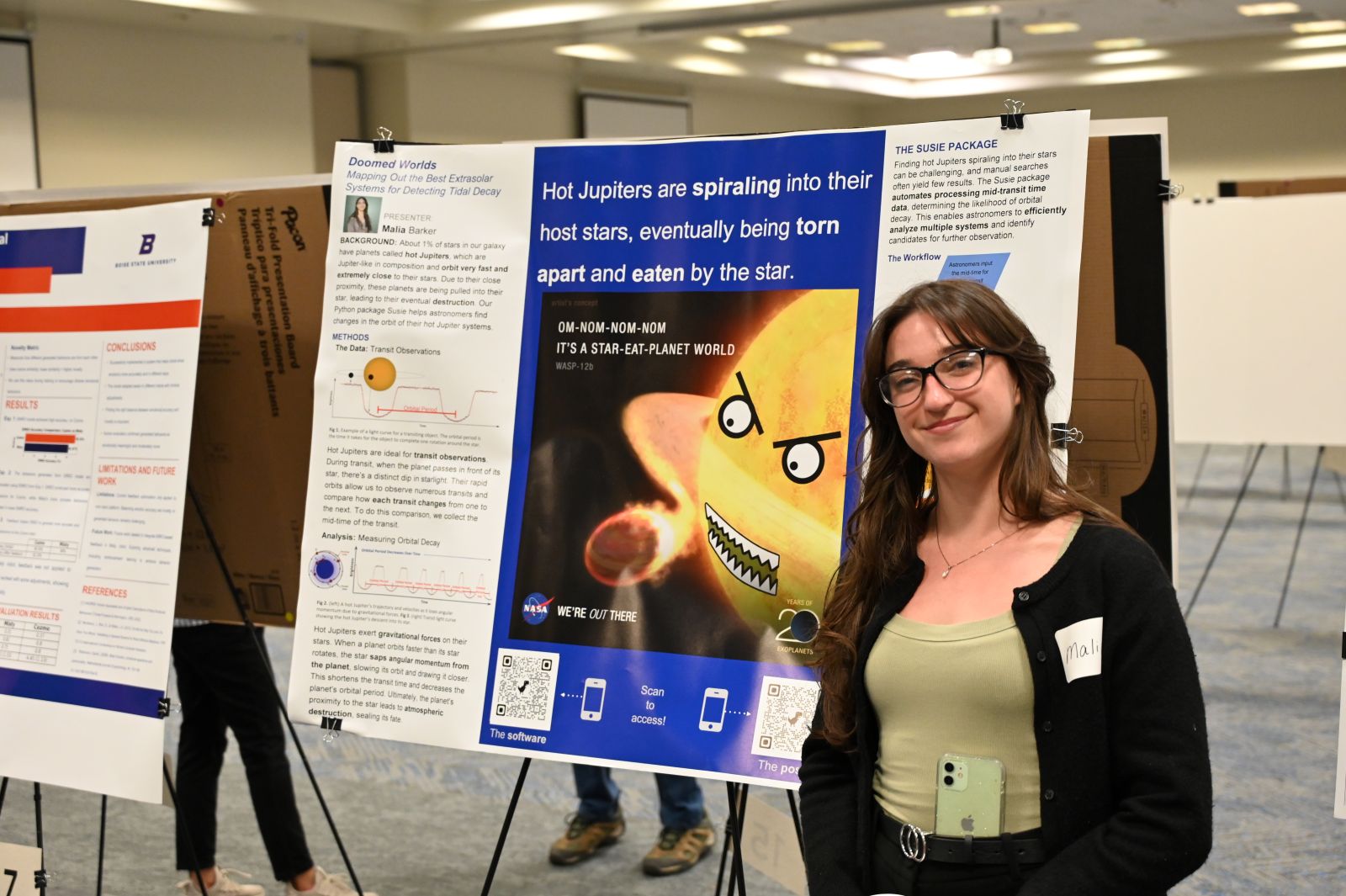
Malia Barker, a doctoral student in computing, recently won a Future Investigators in NASA Earth and Space Science and Technology award. The award will help fund Barker’s education at Boise State and advance computational techniques for exoplanet research.
Barker will work with Professor Brian Jackson from the Department of Physics to complete her doctorate.
An interdisciplinary connection
Barker is a computing student, but she has always had an interest in astronomy.
“I’ve always been interested in interdisciplinary work and how research progresses when other fields of study are involved,” she said.
After a break from college near the start of COVID, Barker reflected on what she was looking for in her education. She decided to blend her love of the natural sciences with computing, taking inspiration from other astronomers using advanced computer science to push the understanding of the universe forward.
Barker finished her undergraduate education in California in 2023, the same year she had a fortuitous meeting with Jackson at an American Astronomical Society meeting. “My current mentor and supervisor at NASA, Sarah Peacock, introduced me to him,” she said. “I explained that I was extremely interested in pursuing a Ph.D., but it was a bit difficult to find a physics program that would take me because my background was not in physics or astronomy.”
Boise State had the perfect fit — a computing program where Barker could work on interdisciplinary research and apply her computer science expertise to problems in astronomy. This program is currently the university’s largest doctoral program with 62 enrolled students.
Studying distant planets
Astronomers have known about planets outside Earth’s solar system for many years now. With the help of newer, bigger telescopes, they’ve even captured direct images of a few. Some of the easiest exoplanets to find and study are called Hot Jupiters. “Hot” because they orbit very near to their host stars and “Jupiters” because they’re very large and mostly gas, like the planet Jupiter in Earth’s solar system.
Barker wants to use advanced computer science to learn more about Hot Jupiter lifecycles. Specifically, how these planets perish.
Thanks to their tight, fast orbits, Hot Jupiters lose angular momentum over time, causing them to slowly “fall” into their host stars.
“Eventually, the planet reaches a distance from the star where it is either torn apart from the star’s gravity or it simply plunges into the star’s surface,” Barker said.
Barker’s grant award will help her create tools for astronomers studying Hot Jupiter orbits.
“I’m currently working on software that other astronomers can use, where they can plug in some observational data of a system with a Hot Jupiter and see if this system is showing signs of these tidal forces,” Barker said. “We then also want to predict how fast the exoplanet will ‘fall’ towards its star, and we also want to study what exactly happens when the planet is destroyed.”